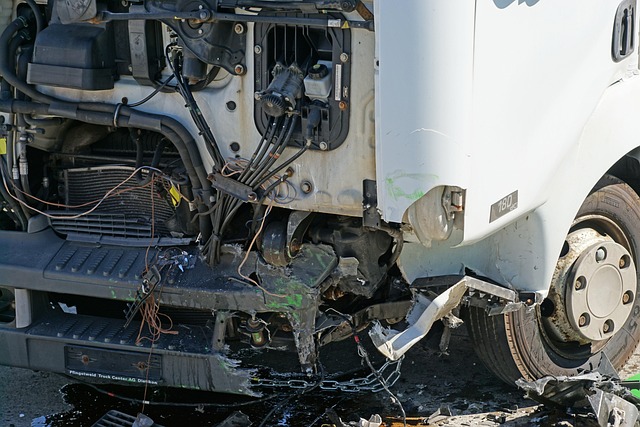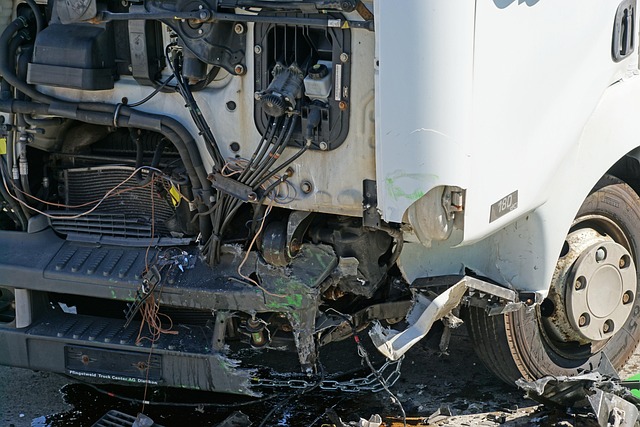Business Interruption Insurance (BII) is a safety net for small businesses, protecting them from financial losses due to unforeseen events like natural disasters, cyberattacks, or civil unrest. It covers lost revenue, additional operational costs, and property rebuilding/replacement, aiding in quicker recovery and resilience. Policies vary, with standard coverage for physical loss and specialized options catering to dynamic operations and cyber liability. Small businesses should evaluate BII based on critical functions, revenue streams, and industry-specific risks, comparing policies for coverage limits, waiting periods, and deductibles. Understanding the claims process is crucial, involving thorough document preparation and detailed answers regarding business impact and losses. Real-world examples highlight BII's importance in mitigating financial losses from diverse disruptions, enabling businesses to recover and thrive.
In today’s unpredictable economic climate, small businesses face various risks that can disrupt operations and impact income streams. One essential tool for safeguarding against these unforeseen events is Business Interruption Insurance. This comprehensive guide aims to demystify this crucial coverage, highlighting why it’s a non-negotiable asset for entrepreneurs. We’ll explore common risks, policy types, the claims process, and real-life case studies, empowering business owners to make informed decisions and mitigate potential downtime.
Understanding Business Interruption Insurance: A Comprehensive Guide

Business Interruption Insurance is a safety net designed to protect small businesses from financial loss during unforeseen events that disrupt normal operations. This type of insurance provides coverage for the direct and indirect costs associated with an abrupt halt in business activities, such as lost revenue, extra expenses incurred while operating from alternative locations, and even the cost of rebuilding or replacing damaged or stolen property.
Understanding this coverage is crucial for small business owners as it helps them prepare for potential crises. Unlike general liability insurance that covers accidents or legal issues, Business Interruption Insurance focuses on the economic consequences of a sudden stoppage. It includes various triggers like natural disasters, cyberattacks, civil unrest, or even equipment failure. The policy will step in to compensate for the lost income and expenses during the recovery period, ensuring the business can bounce back more readily.
Why Small Businesses Need Income Protection

Small businesses are the backbone of any economy, and their resilience is crucial for sustained growth and stability. However, unforeseen events can significantly disrupt their operations, leading to substantial financial losses. This is where Business Interruption Insurance steps in as a vital safety net. It provides protection against potential income gaps caused by various disruptions like natural disasters, cyberattacks, or civil unrest.
Having this coverage ensures that business owners can continue to meet their financial obligations and maintain the cash flow necessary for survival during challenging times. By mitigating the risks of prolonged downtime and revenue loss, Business Interruption Insurance enables small businesses to focus on recovery and adaptation without the added strain of immediate financial distress.
Common Risks and Scenarios Covered by Business Interruption Insurance

Small businesses face a myriad of risks that can disrupt operations and impact revenue streams. Business Interruption Insurance (BII) is designed to protect against these unforeseen events, providing financial safety nets when it matters most. Common scenarios covered by BII include natural disasters like floods or fires, which can close down a business temporarily. This insurance compensates for lost income during the recovery period, ensuring entrepreneurs can rebuild and get back on track.
Additionally, BII often covers situations such as civil unrest, strikes, or even cyberattacks, which can lead to significant downtime and financial losses. By insuring against these risks, small businesses gain peace of mind, knowing they have a reliable safety net in place to weather unexpected storms. This allows them to focus on growth and stability, confident that potential interruptions won’t cripple their operations.
Types of Business Interruption Insurance Policies

Business interruption insurance is a crucial safety net for small businesses, designed to protect against unexpected events that can halt operations and impact revenue streams. There are several types of policies available, each tailored to address specific needs. One common type is the Standard Business Interruption Policy, which provides coverage for direct physical loss or damage to property, as well as losses resulting from necessary shutdown time following a covered event. This policy is ideal for businesses with fixed locations and traditional risk profiles.
For businesses with more dynamic operations, such as those relying on technology infrastructure or facing cyber threats, specialized policies are available. These may include extended periods of business interruption coverage, as well as provisions for additional costs incurred during the recovery process. Some policies also offer cyber liability protection, ensuring financial stability in the event of data breaches or other cyber incidents that disrupt operations and customer trust.
How to Choose the Right Coverage for Your Small Business

When selecting income protection for your small business, it’s crucial to assess your unique needs and risks. Start by understanding your operations; identify essential functions and revenue streams that, if disrupted, could significantly impact your business. This includes considering factors like seasonality, dependencies on suppliers or third-party services, and any legal or regulatory requirements specific to your industry.
Business Interruption Insurance (BII) is a vital component to evaluate. BII protects against unforeseen events causing prolonged closures or revenue loss. It’s not just about covering physical damage; it also addresses scenarios like cyberattacks, civil unrest, or severe weather events that disrupt operations. Compare policies based on coverage limits, waiting periods, and deductibles to find the best fit for your business continuity strategy.
The Claims Process: What to Expect and Prepare For

When it comes to Income Protection for Small Businesses, understanding the claims process is crucial. The journey to filing a claim can be daunting, but knowing what to expect streamlines the experience. First, assess your Business Interruption Insurance policy carefully; policies vary in scope and coverage. Familiarize yourself with the specific events that trigger a claim, such as natural disasters or cybersecurity breaches.
Next, gather essential documents promptly. This includes financial statements, tax records, and any contracts relevant to your business operations. Ensure these are well-organized and easily accessible. The claims process often involves detailed questioning about your business’s impact and financial losses. Be prepared to provide comprehensive answers, supporting them with the documentation you’ve gathered.
Case Studies: Real-Life Examples of Business Interruption Claims

Small businesses are particularly vulnerable to unexpected events that can disrupt operations and significantly impact their financial stability. This is where Business Interruption Insurance steps in as a crucial safety net. By examining real-life examples, we see the tangible benefits of this coverage. For instance, consider a restaurant owner whose business was forced to close due to a fire at their main supplier, causing a complete halt to operations and revenue loss. With Business Interruption Insurance, they could file a claim to cover not only the physical damage but also the lost income during the recovery period.
Another case involves a tech startup that experienced a cyber-attack, leading to data breaches and a temporary shutdown of their online platforms. This event resulted in a decline in sales and customer trust. Thanks to Business Interruption Insurance, the company was able to receive financial assistance to stabilize operations, cover legal fees, and implement security enhancements to prevent future incidents, ensuring their long-term success. These scenarios highlight how specific risks can be mitigated with tailored insurance solutions.
Tips for Mitigating Risks and Minimizing Downtime

Small businesses are vulnerable to various risks that can lead to significant downtime and financial losses. To mitigate these risks, it’s crucial to have comprehensive insurance coverage, particularly Business Interruption Insurance (BII). BII provides financial protection during periods of business disruption caused by events like natural disasters, cyberattacks, or supply chain disruptions. By ensuring your business has the right BII policy, you can minimize downtime and maintain cash flow during challenging times.
In addition to insurance, proactive risk management strategies are essential. Regularly review and update disaster recovery plans, implement robust cybersecurity measures, and foster a culture of preparedness among employees. Staying agile and adaptable will help your business quickly recover from unexpected events, minimizing the impact on operations and financial health.
